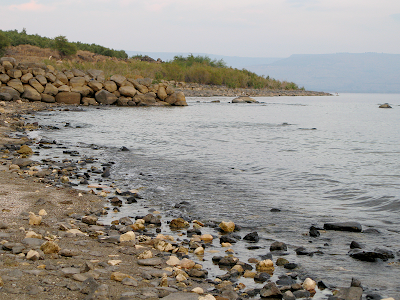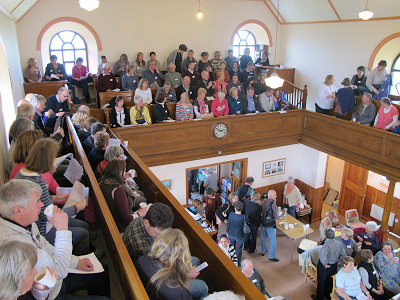< Back to front truth | Index | Gifts, prayer and needs >
Speaking to his disciples, Jesus stresses the importance of avoiding anger, lust, divorce and swearing; he also tells them how important it is to be selfless. He was speaking to leaders in training and it's important that we understand these things are especially significant when we lead.
 |
| An angry man |
As we pay attention to what he says about both negative and positive, we should bear in mind that he is speaking here to leaders in training, the followers he will later send out to work on their own.
This stuff applies to everyone, but it applies especially to anyone who leads. And if we are truly following Jesus we will do what he does (and that includes leading others into the truth).
The highest standards are demanded of people who lead others. We need to be very serious in understanding the harm that we can do, and we need to accept that we are held accountable by Jesus himself.
Anger - In Matthew 5:21-26 Jesus explains that murder is illegal and will be judged. But then he says something quite astonishing. He tells us that anger, insults and even calling someone stupid will be judged equally seriously.
He tells his apprentices that even if they're in the middle of an important and public religious act at the Temple, if it occurs to them that they've wronged someone in any way they should drop what they're doing and go and put things right straight away.
Or, if someone has a legal case against you, come to an agreement with them before the court appearance. It's just common sense really. But it's an illustration of spiritual common-sense too. We are called to love one another, and amongst other things that means keeping our relationships with one another healthy. If we let anger, differences, grudges or hostility creep in we are failing in love. That is a more serious matter than we may realise and it goes against the new, great commandment to 'love one another as I have loved you'.
Lust - Once again, Jesus' standards exceed those of the law. Even looking is condemned as adultery. It is the heart that counts, not just the actions of the body.
Jesus presses this message home by using a Hebraic figure of speech, absurd exaggeration. Hopefully nobody will take these remarks about gouging out an eye or cutting off a hand literally! But the point about lust is important enough to warrant such words.
Truly loving other people is the key to resolving this issue, as with anger. We cannot hurt those we truly love.
We don't need to list recent examples of sexual misconduct in church circles. It happens more often than we like to think. It's usually well hidden for as long as possible and it's always shocking when the truth comes out.
Divorce - Once again, Yahshua insists that the parting of husband and wife is more serious than many assume. The paper certificate is not the issue here. As with anger and lust we need to see that love will prevent this. But we'd better not mix up the different kinds of love in our minds, I don't mean romantic love here, I mean the kind of love Jesus himself calls for, sacrificial and compassionate.
Swearing - Yes or no is enough. Does this apply only to everyday conversation or does it also apply in a court of law? It applies in both cases. When asked to swear in a court of law, find out if there's an option to affirm that you will tell the truth instead. Such an option exists in both UK and USA law.
Whether or not you consider yourself a leader, remember that you are setting an example that others may follow. In this sense whenever we speak or act we are leading those who are watching and listening.
Selflessness - We must be humble, accepting injustices and giving over and above what is asked of us. This, too, is Christlike. He went to the cross without complaint and neither should we complain when harmed or taken advantage of.
We are to love our enemies. This is an astonishing statement! We are to pray for them. What is this all about? It's a matter of being like our Father who is perfect. The more we are like him the better. Jesus told his disciples that if we have seen him we have seen the Father. So it's just the same as saying we are to be like Jesus.
This is what leadership is all about, becoming daily more like Jesus. Jesus is on a mission and we must follow him in that. And out of mission will come discipleship. Others will follow us as we follow Jesus - that's what it means to 'make disciples'. Jesus reveals the Father to us and we must reveal Jesus to those around us.
We can do nothing greater then lead; we dare do nothing less. All of us. And we can copy Jesus in one more thing. If we remember that he was speaking here to trainee leaders we should understand that we, too, need to be training leaders. It is the most important and effective thing we can do.
Questions:
- Can you think of some ways in which you could become more like Jesus in thought and deed?
- In what situations have you led others by your actions or words this week?
- Which of the negatives and positives above do you find most problematic?
- Are there strategies you could use to better deal with those problem areas?
- Affirmation in law - Wikipedia
- Israel and Iran love one another - Journeys of heart and mind
< Back to front truth | Index | Gifts, prayer and needs >














